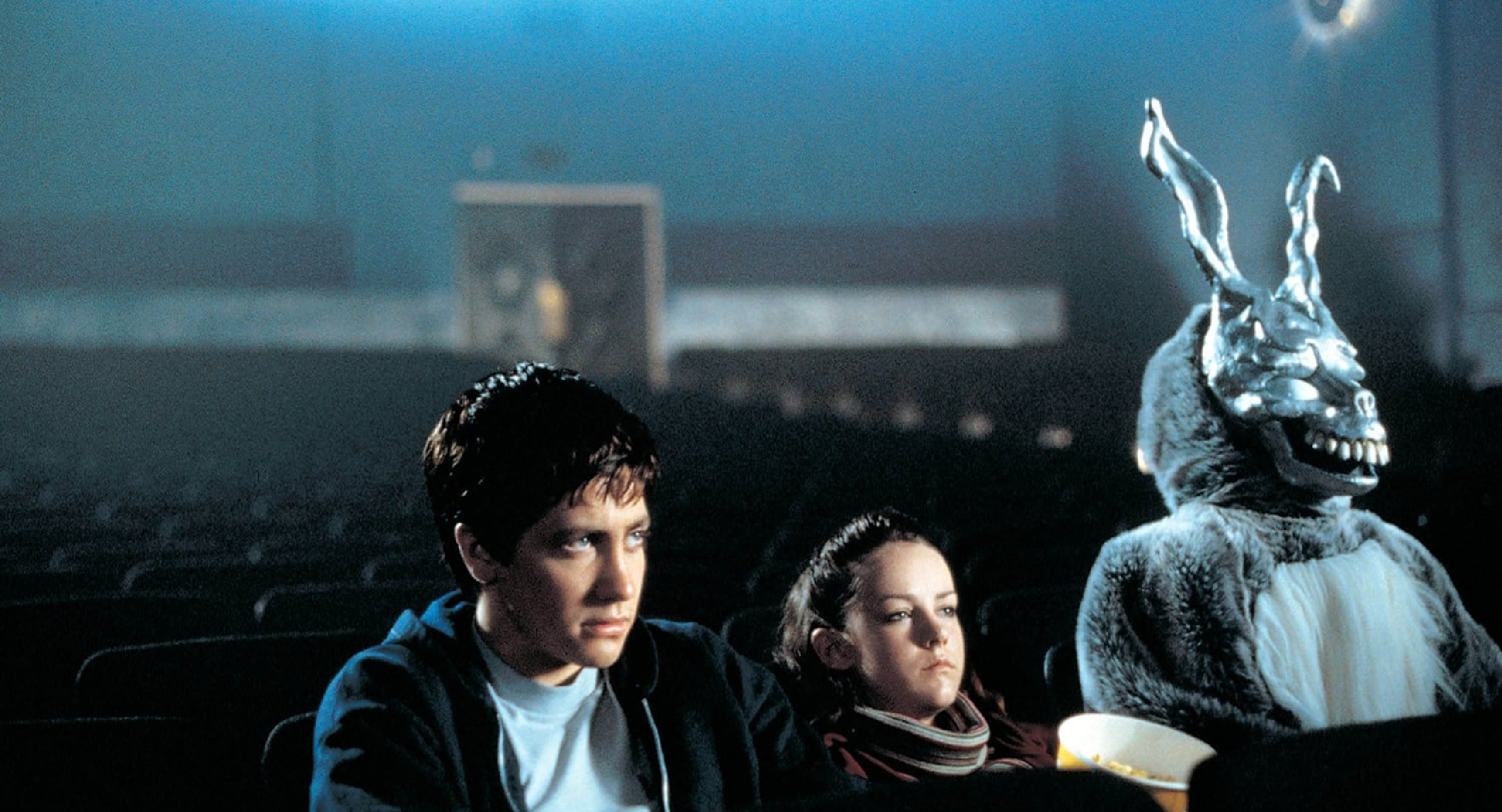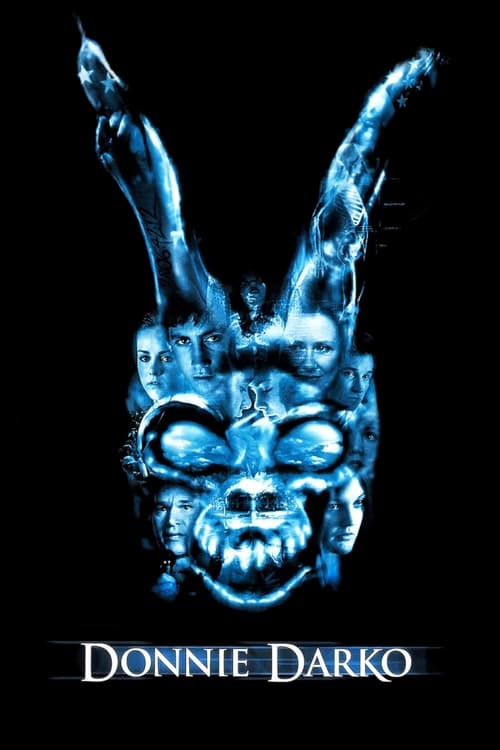Donnie Darko – Film Review
Published February 21, 2024

In the landscape of cinematic marvels that have emerged at the dawn of the 21st century, one film stands uniquely apart, not merely for its enigmatic narrative and mesmerizing visuals but for the indelible mark it leaves on its audience. Donnie Darko, directed by Richard Kelly, is an intricate, multifaceted masterpiece that fuses elements of science fiction, psychological thriller, and teen drama to explore themes of existentialism, destiny, and the intricate fabric of the universe.
At its core, Donnie Darko is the story of a troubled teenager, Donnie (played by Jake Gyllenhaal), who narrowly escapes death when a mysterious jet engine crashes into his bedroom, an event that catapults him into a world teeming with visions, including that of Frank, a man in a chilling rabbit costume. What follows is a surreal journey over the course of 28 days, involving time travel, parallel universes, and philosophical musings on the very nature of existence.
Narratively, the film is a rich tapestry that seamlessly weaves together various elements into a coherent, if intentionally labyrinthine, storyline. Its complexity does not serve to obfuscate but to engage the audience in an active process of piecing together the puzzle that Kelly has masterfully laid out. The script intelligently navigates its myriad themes without ever feeling heavy-handed, prompting viewers to ponder profound questions about fate, free will, and the interconnectedness of all things.
Thematically, Donnie Darko is both ambitious and brilliantly executed. The film challenges its audience to confront uncomfortable truths about the randomness of the universe and the illusion of control. It explores the angst of adolescence, the search for meaning in a seemingly indifferent world, and the power of sacrifice. Moreover, it does so in a way that is both nuanced and accessible, leveraging its setting in the late ’80s to juxtapose the era’s materialism against its protagonist’s existential crisis.
Character development is another area where Donnie Darko shines brightly. Jake Gyllenhaal delivers a career-defining performance, bringing a compelling mixture of vulnerability, intelligence, and subtle menace to the character of Donnie. The supporting cast, including performances by Jena Malone, Mary McDonnell, and Patrick Swayze, among others, add rich layers to the narrative, each character imbued with depth and complexity that contribute to the film’s overarching themes.
Visually, Donnie Darko is nothing short of breathtaking. Kelly, alongside cinematographer Steven Poster, creates a moody, atmospheric world that feels both familiar and otherworldly. The use of shadow and light, the meticulous framing of each scene, and the symbolic use of objects and settings contribute to a visual language that is both haunting and evocative. This visual flair, combined with the film’s iconic soundtrack, which perfectly captures the melancholic essence of the era and the internal turmoil of its characters, makes for an auditory and visual experience that is profoundly impactful.
The enduring legacy of Donnie Darko is perhaps the most compelling argument for its masterpiece status. Nearly two decades since its release, the film continues to inspire passionate discussion and analysis among audiences and critics alike. It has become a cult classic, not because it is obscure, but because it resonates on such a personal, visceral level with those who experience it. Donnie Darko does not provide easy answers; instead, it offers a mirror to our innermost questions about the universe and our place within it.
Donnie Darko is a film of unparalleled depth and complexity. It stands as a testament to the power of cinema to explore the human condition, to challenge our perceptions, and to leave us profoundly moved. Richard Kelly’s masterful direction, combined with exceptional performances, a compelling narrative, and stunning visual and auditory presentation, ensure that Donnie Darko not only warrants but unequivocally deserves the title of being a masterpiece. This film is not just watched; it is experienced, contemplated, and forever cherished as a rare gem in the annals of cinematic history.
